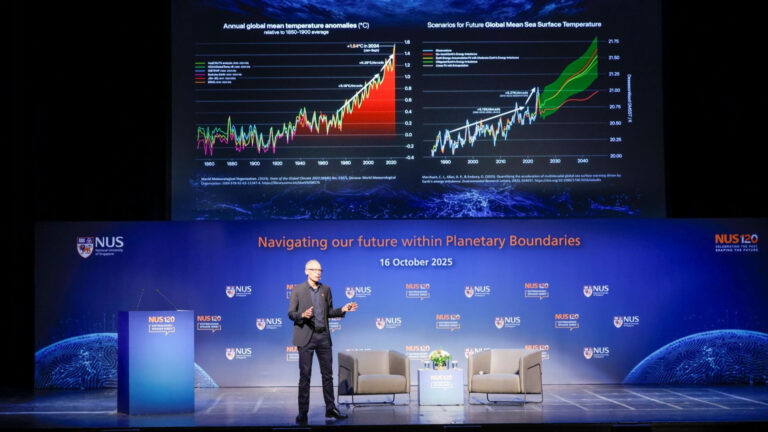What made the pact powerful was its binding nature. “We didn’t have a phase-out plan for chlorofluorocarbons. We forbade them. It was a red line in the sand. It was a mandatory regulatory framework,” he added.
By contrast, the 2015 Paris Agreement depends too heavily on voluntary pledges. What the energy transition needs, he said, is compliance and accountability guided by science, and for policy science and technology to work hand in hand.
“The Montreal Protocol succeeded, not only thanks to science and to political leadership, but also because the industry had solutions, and they were scalable solutions that got equal or better outcomes,” he elaborated.
From peril to possibility
Today, as we stand on the cusp of a critical turning point in our planet’s future, Prof Rockström’s work is more pertinent than ever before in addressing the pressing challenges that confront us.
Despite his bleak analysis, Prof Rockström stressed that the story need not end in despair. “I don’t call this doom,” he said in response to another question about how to overcome public apathy towards climate science.
“The story of sustainability is the story of winners, of modernity and of the future,” he added.
There are also emerging “bright spots”. He highlighted exponential gains in renewable energy: “We’re passing this 10 per cent point in solar and wind … When new innovations penetrate more than 20 per cent of market share and show to be better options than incumbent solutions…they can tip over the entire market.”
Electric-vehicle (EV) adoption, he added, was rising steeply, with 90 per cent of car sales in Norway being EVs and the EV market share in Denmark approaching 60 per cent.
The other breakthrough, he said, lies in transforming global food systems. A shift towards healthier, largely plant-based diets and lower food waste could, combined with clean energy, bring humanity back within planetary limits.
“If we can decarbonise the energy system and shift towards healthy diets, we could actually return to a safe operating space within the next 25 years,” he said.
Partners in science
The lecture also marked the signing of a Memorandum of Understanding between NUS and the Potsdam Institute for Climate Impact Research, committing the two institutions to collaborate on research into global change, climate impacts, water, energy and sustainable development. The agreement provides for joint projects, data sharing and researcher exchanges.
‘;
Images are for reference only.Images and contents gathered automatic from google or 3rd party sources.All rights on the images and contents are with their legal original owners.

